When the Christopher Cross Classic ‘Yacht-Rock’ Debut Went Sailing to the Top
by Mark Leviton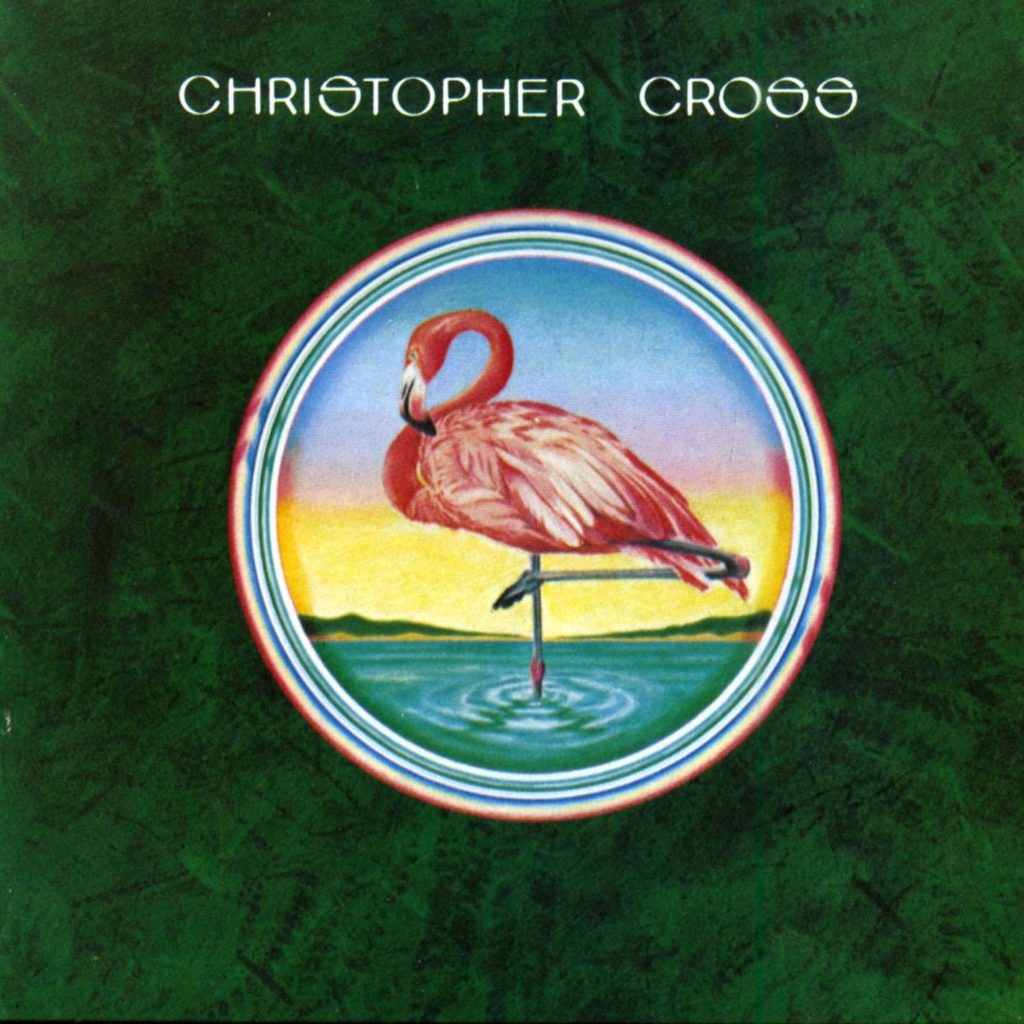 Quick! What do Christopher Cross and Billie Eilish have in common?
Quick! What do Christopher Cross and Billie Eilish have in common?
Answer: They are the only artists who have won the four major Grammy Awards (Album of the Year, Song of the Year, Record of the Year and Best New Artist) in the same year. They achieved this feat in 1981 and 2020, respectively: Eilish is 50 years younger than the man born Christopher Charles Geppert in San Antonio, Tex. Only time will tell if she endures the kind of backlash that, after a spectacular start with hits “Ride Like the Wind” and “Sailing,” cast Cross into music business purgatory and back to fame again. Good luck to her.
Christopher Cross was originally the name of a band, not a person. In the early ’70s, Geppert had graduated from wailing “Wipe Out” as drummer with his junior high group the Psychos to local stardom as a hot guitar-slinger with a quartet called Flash, which featured his buddies Rob Meurer on keyboards and bass player Andy Salmon. (Meurer once quipped, “Anyone who thinks all Chris can play is ‘Sailing’ doesn’t know he started out with a Flying V and a Marshall stack and hair out to here.”)
As a frequent opening act at San Antonio’s hotspot the JAM Factory, Geppert was also called upon as a gofer for the club’s owner Joe Miller, picking up the Peter Green-era Fleetwood Mac from the airport (never imagining he would tour with them a decade later), and once subbing for Ritchie Blackmore during a Deep Purple concert.
As Cross recalled in a 2012 interview with the Austin Chronicle’s Margaret Moser, “Blackmore had a reaction to the flu shot, and he got sick. The show was sold out, and Joe Miller suggested to Jon Lord he use me to sub, and Joe would issue refunds to anyone who wanted. Ian Gillan was not for it, but Jon Lord made the call, and they said okay. Eric Johnson was opening, so I used his Marshall amp. I played the Deep Purple tunes I knew and some blues and got through it. I drove them to the airport, and when they left, I met Ritchie. He gave me his pick and was very nice.”
After a move to Austin, drummer Tommy Taylor was recruited to transform Flash into Christopher Cross the group, which eventually became Geppert’s stage name when he was signed, ostensibly as a solo artist, to Warner Bros. Records in 1979. In a town where freaky country-rock dominated, Cross says he never went to music meccas Antone’s or Armadillo World Headquarters, where Jerry Jeff Walker, Rusty Weir and Willis Alan Ramsey ruled. Still, he was influenced by fellow Texans Buddy Holly, Doug Sahm and San Antonio big band leader Sunny Ozuna, from whom Cross admits he borrowed a Latin-American rhythmic tinge for the new songs, all solo compositions, gestating in Austin.
“We did feel slighted by Austin,” Cross told Moser after he’d become a resident in the city once again, “but we never related to the songwriting or music being celebrated here and always looked to a more West Coast star. My attitude was to do the cover music. It paid the bills better. But keep your own music under your hat and shop it to the labels. That took us out of the mainstream.” Those demos, done at Austin’s Pecan Street Studios, got him a recording contract.
In July 1979, hunkered down at WB’s Amigo Studios in North Hollywood, the four band members were supplemented by a raft of top session players and singers, under the direction of producers Michael Omartian and Michael Ostin. Recording on the new 3M Digital Recording System, the eponymous Christopher Cross LP took shape quickly. Released on Dec. 20 of that year, it began throwing off hit singles immediately, moving toward sales of five million copies in the U.S. alone and still counting.
“Say You’ll Be Mine” kicks off the album with a Latin rhythm, Lenny Castro’s percussion, and more than a hint of Brian Wilson in Cross’ lead and the background vocal arrangement. Nicolette Larson is on hand to harmonize, and Jay Graydon brings some of his work with Steely Dan to his mercurial guitar solo. Unfortunately, as a lead-off track it’s fairly pedestrian, and the lyrics don’t exactly signal the words are going to matter on the album: “Say you’ll be mine/Say you’ll be mine until the sun shines/Say you’ll be mine/And bring me the dream of a lifetime.”
“I Really Don’t Know Anymore” has more energy, and gets considerable help from Michael McDonald, who joins Cross for a soaring chorus after two verses, and carries some nice counter-lines throughout. Unfortunately, the lyrics are once again bland, replying to the question “What do you think about love?” with “I really don’t know anymore/I really can’t say/I really don’t know anymore/I’m just that way.” A five-piece horn section, made up of studio aces including trumpeter Chuck Findley and saxophonist Jim Horn, provides a Chicago-type drive, and the guitar solo, full of audacious twists, turns and effects, is by another Steely Dan go-to, Larry Carlton.
“Spinning” has a lovely instrumental intro with a hint of “Rikki Don’t Lose That Number.” The first voice heard is that of Valerie Carter, whose work as songwriter, solo artist and harmonizer-to-the stars should be better known. She pairs very well with Cross, and Findley’s flugelhorn work midway is perfection. Victor Feldman provides a subtle vibraphone part, and concertmaster Assa Drori blends a string section with Meurer’s synth. This is the album’s first truly impressive track.
“Never Be the Same” was tapped to be the set’s third single release, and deserved to make it higher than #15 in Billboard. Cross’ vocal is confident and perfectly mixed into an impressive arrangement. The background vocals for the peppy choruses and under another excellent Graydon solo are spot on, and with the light Latin rhythm the combo of Castro, Feldman, Taylor and Salmon pays dividends.
“Poor Shirley” borrows a bit of the string quartet of “Eleanor Rigby” and piano-driven rhythm of the Beach Boys’ “Sail On, Sailor,” but it goes way beyond mere imitation. Cross makes a creditable stab at poetry in the lyrics: “Dearly held are the friends/Left in the years and lost in the war/Dearly held are the loves/Save for the ones you lose on your own.” Cross’ Brian Wilson-infused lead vocal, complete with falsetto passages, might be his best on the album. (He also handles the multiple backing vocals.) If anyone needs evidence that Cross can really sing with emotion and great attention to detail, here it is. He handles the guitar solo himself too, ending the side with a flourish.
“Ride Like the Wind,” with its infectious rhythm and gliding melodies, is a group effort par excellence, as Castro’s congas, Omartian’s acoustic piano, McDonald’s echo-vocal, the horn section and a fantastic blend of synth, strings and wordless chorus all do their parts. Kudos to engineers Chet Himes and Stuart Gitlin for keeping it all sparkling, and to Cross, who is on fire for his lead vocal and concluding, quite gnarly, guitar solo. Released as a slightly edited single Feb. 15, 1980, “Ride Like the Wind” hung in at #2 on Billboard’s Hot 100 for a month, stymied by Blondie’s “Call Me” in the top spot.
Don Henley and J.D. Souther help Cross sing “The Light Is On,” which is full of little percussion touches from Feldman and Castro, and contains a pair of Carlton’s thrilling solos, each with a character of its own. The future #1, Song of the Year and perennial radio staple “Sailing” follows, and deserves the accolades. It casts a spell from the opening bars, and Cross finds a restrained, sensitive timbre in his voice that fits his dreamy lyrics perfectly: “Well, it’s not far down to paradise/At least it’s not for me/And if the wind is right you can sail away/And find tranquility.”
Watch Cross perform it on The Midnight Special on Sept. 12, 1980
The LP’s longest track, “Minstrel Gigolo,” is placed last in the sequence. Cross’ Austin pal Eric Johnson gets a lengthy solo in the middle, and saxophonist Thomas Ramirez has a spotlight in the final minute, snaking in beautifully after Johnson’s second terrific solo. Cross might have been thinking of some Austin lothario when he wrote “All the young and lonely girls wait for you/There by the backstage door/And they’re hoping to be the one,” but if it was wishful thinking it worked, as he became a heartthrob for audiences as the success of Christopher Cross grew and he graduated to huge venues himself after serving as opening act on Fleetwood Mac’s Tusk tour.
Related: See where the album ranked among the top-selling LPs of 1980
His second album, Another Page, couldn’t match his debut, and Cross’ last major hit occurred in 1981 with “Arthur’s Theme (Best That You Can Do),” an Oscar-winner and #1 pop hit he wrote with Burt Bacharach and Carole Bayer Sager. For whatever reason, even as he continued to issue high-quality recordings, he quickly went out of fashion, until his rediscovery as an icon of so-called “yacht rock.” The term was coined by a cult comedy web series of that name in 2005, which imagined the likes of Kenny Loggins, the Doobie Brothers, Hall and Oates, and Christopher Cross hanging out together in L.A.’s Marina del Rey. “Sailing” took on a new, albeit fictional, meaning.
Defending yacht rock in a 2016 article in The Guardian, cultural historian Jennifer Otter Bickerdike asked, “Why be ashamed of appreciating a carefully crafted, meticulously produced song, which, technically speaking, most tracks in the yacht category are? The very care and attention to detail that had gone out of style is now being embraced and appreciated. A decade after Spin magazine touted the cover headline ‘Why Hall and Oates are the New Velvet Underground,’ its presence is still strong.”
After releasing a mostly instrumental album, Take Me As I Am, in 2017, Cross helped form Freedonia, a new band (named for a nation in the Marx Brothers’ Duck Soup) which issued its debut CD in 2018. During 2019, Cross was part of an all-star tour in celebration of the White Album, doing five Beatles songs, including “Martha My Dear” and “Mother Nature’s Son,” and by popular demand performed “Sailing” and “Ride Like The Wind” every night. As of this writing, he’s been suffering from the lingering effects of Covid, but according to his website he hopes to get back on the road for his 40th Anniversary Tour as soon as possible.
Watch Cross perform “Ride Like the Wind” in 1998 with Michael McDonald
- Bill Withers, ‘Live at Carnegie Hall’: Soul Preachin’ - 04/21/2024
- Roger Daltrey and His 1973 Solo Debut: Doing A Favor - 04/20/2024
- Deep Purple ‘Machine Head’: Rockin’ in Montreux - 04/19/2024

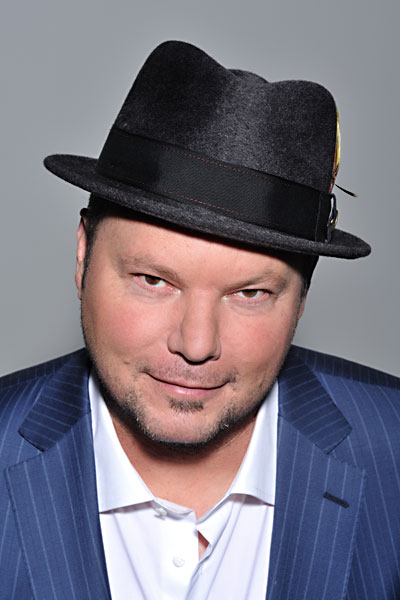
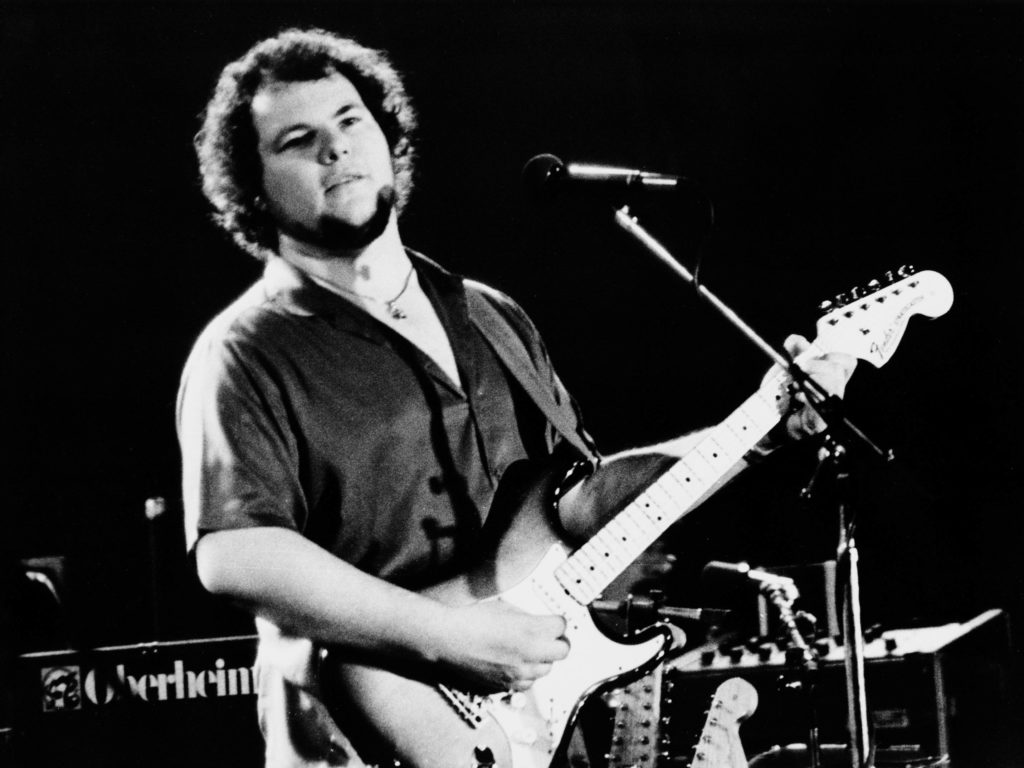
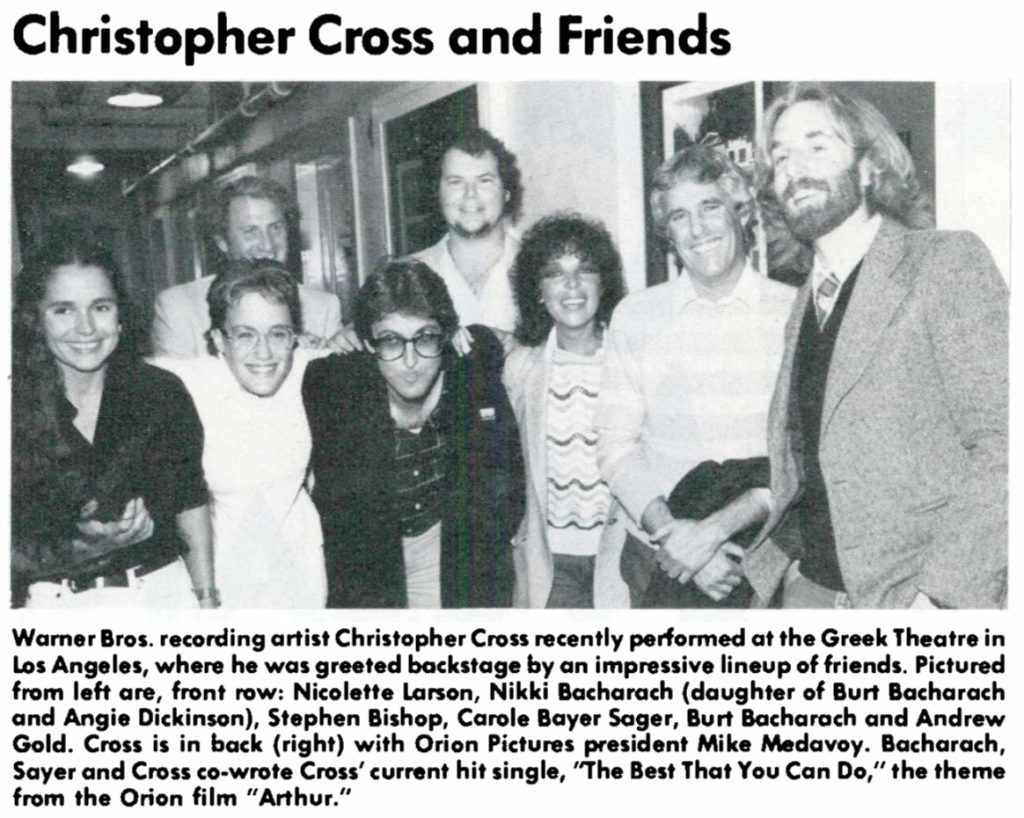
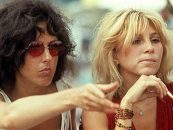
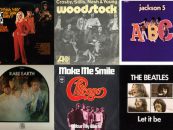
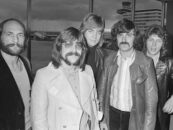
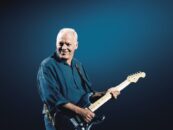

No Comments so far
Jump into a conversationNo Comments Yet!
You can be the one to start a conversation.